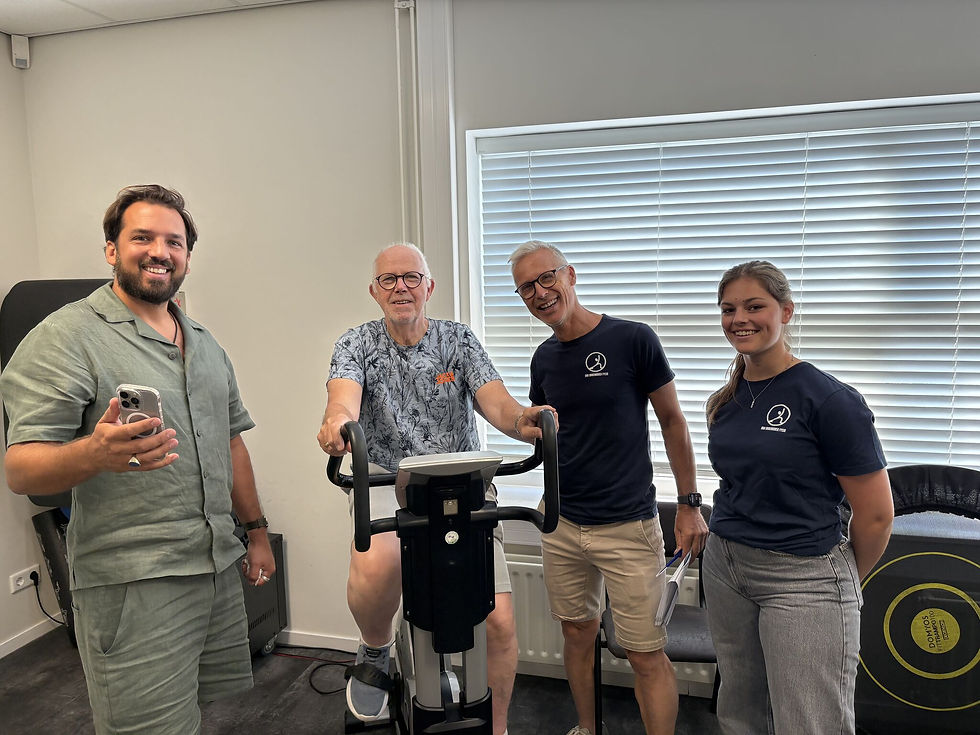The Role of IDRO in Screening Neurological Disorders
- Sophie Vervullens

- Jul 16, 2025
- 2 min read
You may have read our earlier article on how continuous lactate monitoring (CLM) with the IDRO device could transform healthcare. In that post, we introduced the Interoperable Remote Health Innovation brought to Scale (IRHIS) project, funded by the European Innovation Council and SMEs Executive Agency (EISMEA) under the Interregional Innovation Investments Instrument (I3).
One of the IRHIS DemoScale labs focuses specifically on patients with neurological disorders, and in this post, we take a deeper look into that segment of the project. With the question; Can Sweat Lactate Provide Information about Symptoms in neurological disorders?
Understanding the Challenge: Parkinson’s Disease and Essential Tremor
People living with Parkinson’s disease (PD) often struggle with symptoms such as tremor, bradykinesia, and rigidity. In Essential Tremor (ET), although the underlying mechanism differs, tremor remains a dominant and disruptive symptom. These motor disturbances make simple daily tasks—such as eating or writing—extremely difficult.
Physical activity as part of rehabilitation management has been shown to improve both motor and non-motor functions in PD. Emerging evidence suggests that exercise can lead to neuroplastic changes that stabilise symptoms and potentially slow disease progression.
Therefore, monitoring physical fitness and fatigue is crucial in this population, and this is where sweat lactate monitoring with IDRO may provide added value. Lactate levels provide insight into metabolic and physiological responses, and we will investigate whether sweat lactate levels may reflect symptom severity or fluctuations over time.

Specific Study Objectives
This study aims to:
Explore associations between sweat lactate levels and neurological symptom patterns and fluctuations in PD and ET.
Collect user feedback to refine device usability, data quality, and improve algorithm development.
The used technologies offer a non-invasive, objective, and real-time view into each patient's symptom profile, both in clinical settings and at home.
European Collaboration
This research is being conducted in the Netherlands (Van Broekhoven Fysiotherapie) and Greece (Apokatastasi Rehabilitation Center), in collaboration with:
VILIMED (Lithuania)
Eindhoven University of Technology (Netherlands)
Ergobyte (Greece)
AICRUM (Spain)
Looking Ahead
The study officially launched in June 2025, and results will help determine how this combined approach can be scaled, validated, and potentially integrated into routine clinical care for people with PD and ET.
Interested in collaborating or piloting the IDRO device? Feel free to reach out to the team via info@idro.world.







